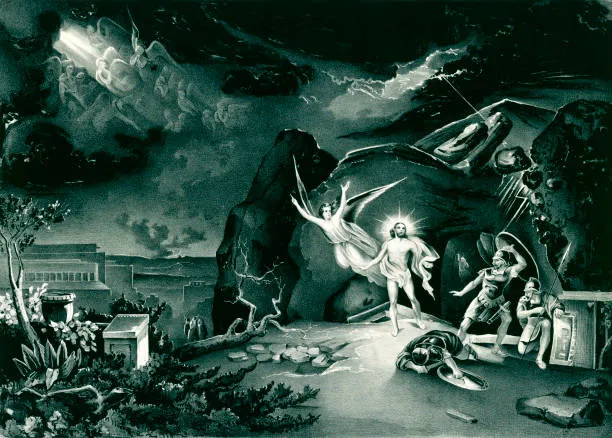
Have you ever pondered the idea of reincarnation? The concept of rebirth, a fundamental belief in various spiritual and philosophical traditions, has captured the human imagination for centuries. But have you ever considered how this mystical notion intersects with the realm of law? In this article, we delve into the captivating topic of the “law of reincarnation” to unravel its intricacies and explore the various legal aspects associated with it.
Introduction
The concept of reincarnation, often associated with the cyclic journey of the soul, has intrigued cultures across the globe for generations. Beyond its spiritual significance, reincarnation has sparked discussions in legal circles. The notion of the “law of reincarnation” refers to the legal implications and considerations surrounding claims of individuals being reborn. This article aims to shed light on the various dimensions of this intriguing phenomenon.
The Essence of Reincarnation
At its core, reincarnation suggests that after death, the soul undergoes a transformative journey, taking residence in a new physical form. This cyclical process is believed to continue until spiritual enlightenment is achieved. The law of reincarnation, however, delves into the complexities of how this belief intersects with legal rights and responsibilities.
Reincarnation in Religious and Philosophical Thought
The Ancient Wisdom of Eastern Philosophies

Eastern philosophies such as Hinduism and Buddhism have long embraced the idea of reincarnation. The belief in karma, the cosmic law of cause and effect, is intertwined with the notion of rebirth. In these traditions, legal matters can intertwine with reincarnation when considering issues of inheritance and succession based on past-life actions.
Reincarnation in Western Belief Systems
While reincarnation finds its roots in Eastern thought, it has also captured the imaginations of Western thinkers. Modern esoteric and New Age movements have incorporated reincarnation into their beliefs. In a legal context, these perspectives may influence matters related to personal identity, self-expression, and religious freedom.
Legal Interpretations and Implications
Reincarnation and Property Rights
One of the most intriguing aspects of the law of reincarnation pertains to property rights. Imagine a scenario where an individual claims to be the reincarnation of someone with substantial wealth. How should their potential inheritance be distributed? Legal systems must grapple with validating such claims while upholding fairness and preventing fraudulent behavior.
Parental Rights and Reincarnated Individuals
In cases where a child claims to remember a past life and the previous family, conflicts can arise. The law must consider whether the child’s memories hold legal weight in decisions regarding custody and visitation rights. Balancing the interests of the past and present families adds complexity to the legal process.
Reincarnation and Inheritance
The intricacies of inheritance law become pronounced when dealing with reincarnation claims. Should an individual’s past-life connections influence their inheritance rights? Legal systems may need to evolve to address these unique situations, ensuring justice for all parties involved.
The Right to Choose One’s Rebirth
As society becomes more multicultural, questions arise about an individual’s right to choose their next life. This concept, while often spiritual, can also intersect with personal autonomy and reproductive rights. Legal frameworks must adapt to accommodate these diverse perspectives.
Challenges and Controversies
Establishing Authenticity of Reincarnation Claims
Proving the authenticity of reincarnation claims presents a significant challenge. How can one verify memories of a past life? The legal system must balance skepticism with open-mindedness, respecting individuals’ beliefs while maintaining standards of evidence.
Clash of Religious Beliefs and Legal Norms
In societies with diverse religious beliefs, clashes between reincarnation and legal norms can occur. Striking a balance between upholding the law and respecting individuals’ spiritual convictions requires nuanced legal interpretation.
Ethical Considerations in Legal Recognition

Ethical dilemmas emerge when considering legal recognition of reincarnation claims. How much weight should be given to spiritual beliefs in legal proceedings? Addressing these questions requires a delicate balancing act between secular and religious values.
The Global Perspective
Variations in Legal Treatment Worldwide
Different countries approach the law of reincarnation with varying degrees of recognition. Some nations incorporate spiritual beliefs into legal considerations, while others maintain a strict separation between the two realms.
Countries with Explicit Reincarnation Laws
Certain countries, influenced by their cultural and religious contexts, have explicit laws addressing reincarnation. These laws can govern matters like religious rituals, inheritance, and succession based on the belief in past lives.
Legal Precedents and Landmark Cases
Case Study: Reincarnation and Inherited Wealth
The case of an individual claiming to be the reincarnation of a wealthy business magnate raises intriguing questions about inheritance. Legal experts grapple with determining the legitimacy of the claim and the resulting impact on inheritance distribution.
Case of Reincarnated Spiritual Leaders
Instances of individuals claiming to be the reincarnation of revered spiritual leaders also present unique legal challenges. Balancing religious freedoms, societal expectations, and legal recognition can shape legal decisions.
The Intersection of Science and Spirituality
Hypotheses on the Mechanism of Reincarnation
From a scientific standpoint, hypotheses about the mechanisms of reincarnation emerge. Concepts such as genetic memory and consciousness transfer spark interdisciplinary discussions, inviting collaboration between spirituality and science.
Scientific Skepticism and Exploration
While spirituality embraces the mystical aspects of reincarnation, scientific inquiry takes a more skeptical stance. Researchers explore potential explanations for memories of past lives, raising questions about the intersection of biology, psychology, and metaphysics.
A Glimpse into the Future
Evolving Legal Perspectives on Reincarnation
As society evolves, so too must legal frameworks. The law of reincarnation presents an opportunity for legal scholars, policymakers, and spiritual leaders to engage in meaningful dialogue, crafting inclusive legal perspectives that honor both spiritual beliefs and individual rights.
Navigating Reincarnation in a Modern Society
The increasing globalization of society brings individuals with diverse beliefs into closer contact. Legal systems must navigate the complex landscape of reincarnation, respecting cultural and spiritual traditions while ensuring justice and fairness.
Conclusion
The law of reincarnation, a fascinating crossroads of spirituality and legal consideration, prompts us to reflect on the intricate tapestry of human beliefs and rights. From inheritance disputes to religious freedoms, this concept challenges our legal systems to adapt while embracing the diversity of human experience.
FAQs
Can a person’s belief in reincarnation affect their legal decisions?
Yes, an individual’s belief in reincarnation can influence matters related to inheritance, property rights, and personal choices.
Are there countries with explicit laws recognizing reincarnation?
Yes, some countries with strong cultural and religious ties to reincarnation have explicit laws addressing related matters.
How do legal systems verify the authenticity of reincarnation claims?
Verifying authenticity often involves a balance between respectful consideration of beliefs and adherence to evidentiary standards.
What challenges arise when reconciling reincarnation with modern legal values?
The clash between spiritual beliefs, diverse cultural perspectives, and modern legal norms creates challenges in finding common ground.
How might the understanding of reincarnation evolve in the future?
The intersection of science and spirituality may lead to new insights and perspectives on reincarnation, shaping its legal implications.





